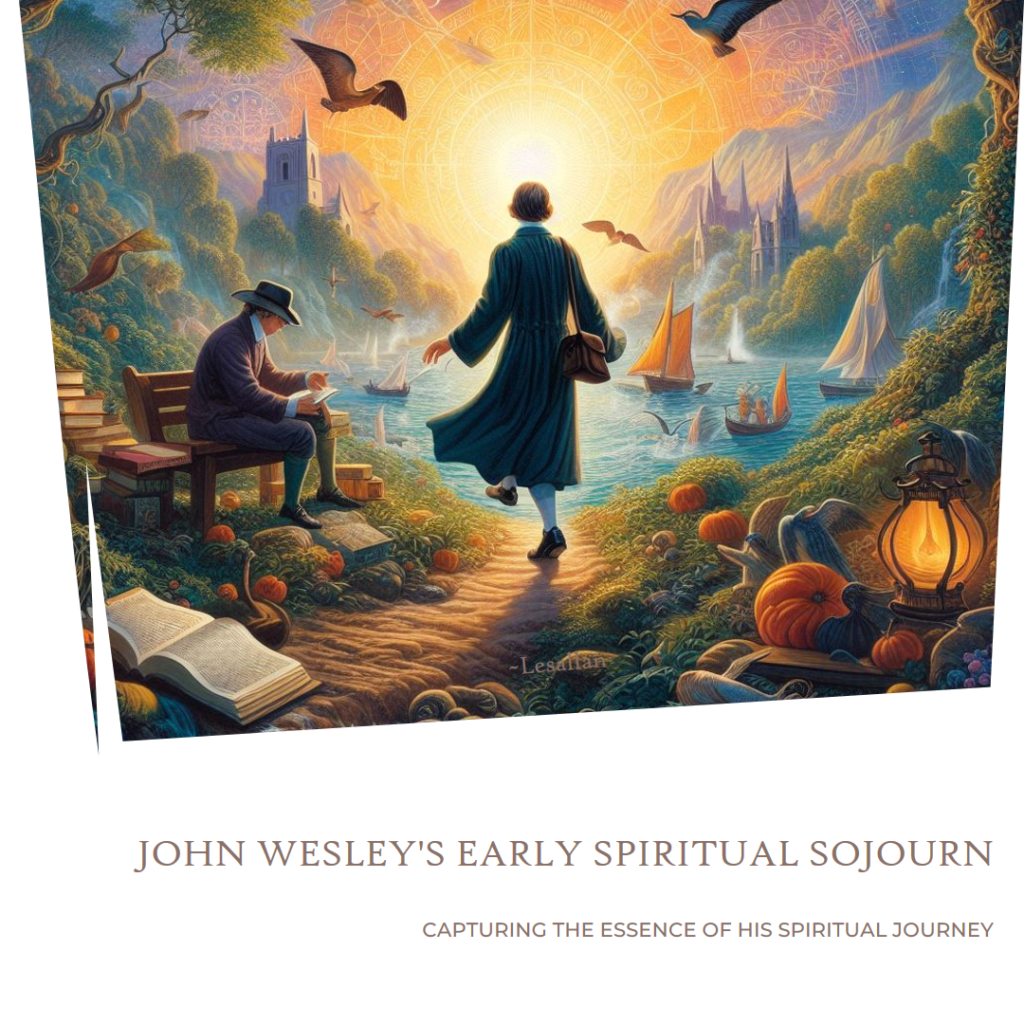
John Wesley’s Early Spiritual Sojourn
Written by Lesallan
Ohio Christian University
THE3360 Theology of John Wesley (ONLSP24)
Dr. Steven Gerig
January 15, 2024
John Wesley’s Early Spiritual Sojourn
John Wesley, the renowned founder of the Methodist movement, embarked on a relentless pursuit of certitude in his salvation and an unwavering commitment to serving God. He demonstrated an unyielding determination to live a life of faithfulness and devotion during his early spiritual journey. One of the most critical periods of his life was his tenure at Oxford University, where he formed a religious society known as the “Holy Club” with his brother Charles and a few close friends (Collins, 1999). This paper provides a comprehensive overview of Wesley’s spiritual journey during his early years.
The Holy Club was a committed group of students who regularly gathered for prayer, for Bible study, fasting, and acts of kindness. Their strict adherence to religious observance and ethical conduct earned them the nickname “Methodists” among their peers. Their unwavering dedication to spreading the teachings of Jesus and the apostles led them to minister to the underprivileged, prisoners tirelessly, and the sick in Oxford (Collins, 1999).
Wesley’s motivation for leading the Holy Club stemmed from his firm belief that he needed to do more than the ordinary to please God and attain salvation. Despite being raised in a devout Anglican family, he felt his devotion was insufficient and insincere. Uncertainties, anxieties, and temptations plagued him, and he sought to follow a strict regimen of righteousness that would bring him peace and certainty (Collins, 1999).
Wesley realized that his efforts were not enough to calm the restlessness he found within his soul. He felt he lacked something crucial in his relationship with God: a personal experience of grace and love. In his journal, he wrote, “I was constantly at war, yet never emerged victorious… I stumbled and rose, only to fall again.” This quote is stated and attributed to John Wesley. He also faced opposition and ridicule from colleagues and teachers who labeled him as overzealous, overly strict, or insincere (Collins, 1999).
Wesley’s time at Oxford was a turning point in his spiritual growth, preparing him for future interactions with various Christian groups like the Moravians and Pietists. These encounters introduced him to the concept of justification by faith alone and helped shape his vision for a revival movement within the Church of England. This movement emphasized personal devotion, social justice, and a passionate commitment to spreading the gospel (Collins, 1999).
It is important to note that John Wesley’s early spiritual journey was characterized by his unrelenting pursuit of personal holiness and unwavering dedication to serving others. His time at Oxford University and leadership of the Holy Club shaped his spiritual beliefs and led him to adopt the doctrine of justification by faith alone. This became a cornerstone of the Methodist movement, which he later established. Despite obstacles and criticisms, Wesley remained committed to deepening his relationship with God, and his legacy has impacted Christian history. John Wesley’s spiritual transformation during his early years at Oxford University and involvement with Christian groups shaped his theological understanding, which led to the Methodist movement. His story emphasizes the potential for faith to bring change and inspire individuals to have a significant impact within their religious communities.
This paper is an overview of John Wesley’s early spiritual journey, focusing on his relentless pursuit of personal holiness and unwavering dedication to serving others. His time at Oxford University, particularly his leadership of the Holy Club, played a significant role in shaping his spiritual beliefs. Despite facing obstacles and criticisms, Wesley’s commitment to deepening his relationship with God led to the establishment of the Methodist movement. His story emphasizes the transformative power of faith and its potential to inspire individuals to impact their religious communities significantly.
References:
Collins, K. J. (1999). A Real Christian: The Life of John Wesley. Abingdon Press.


